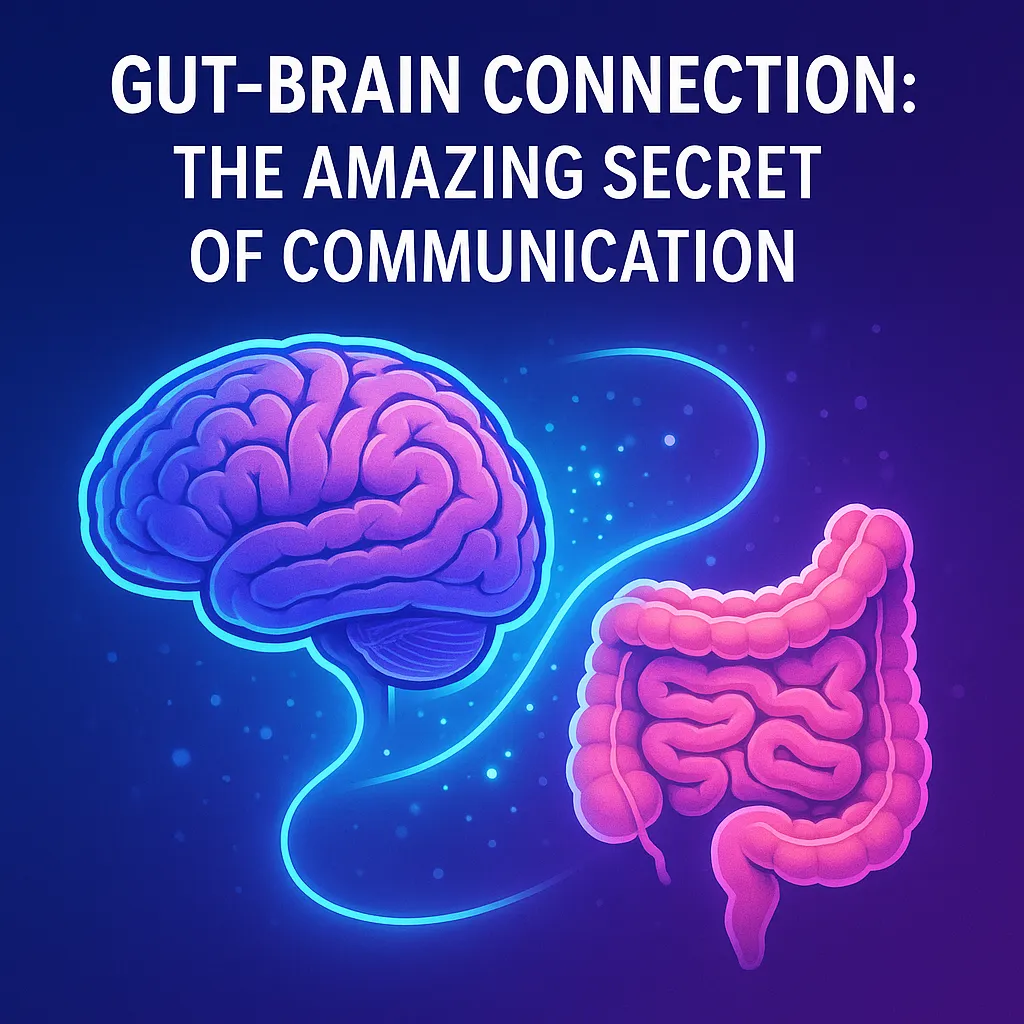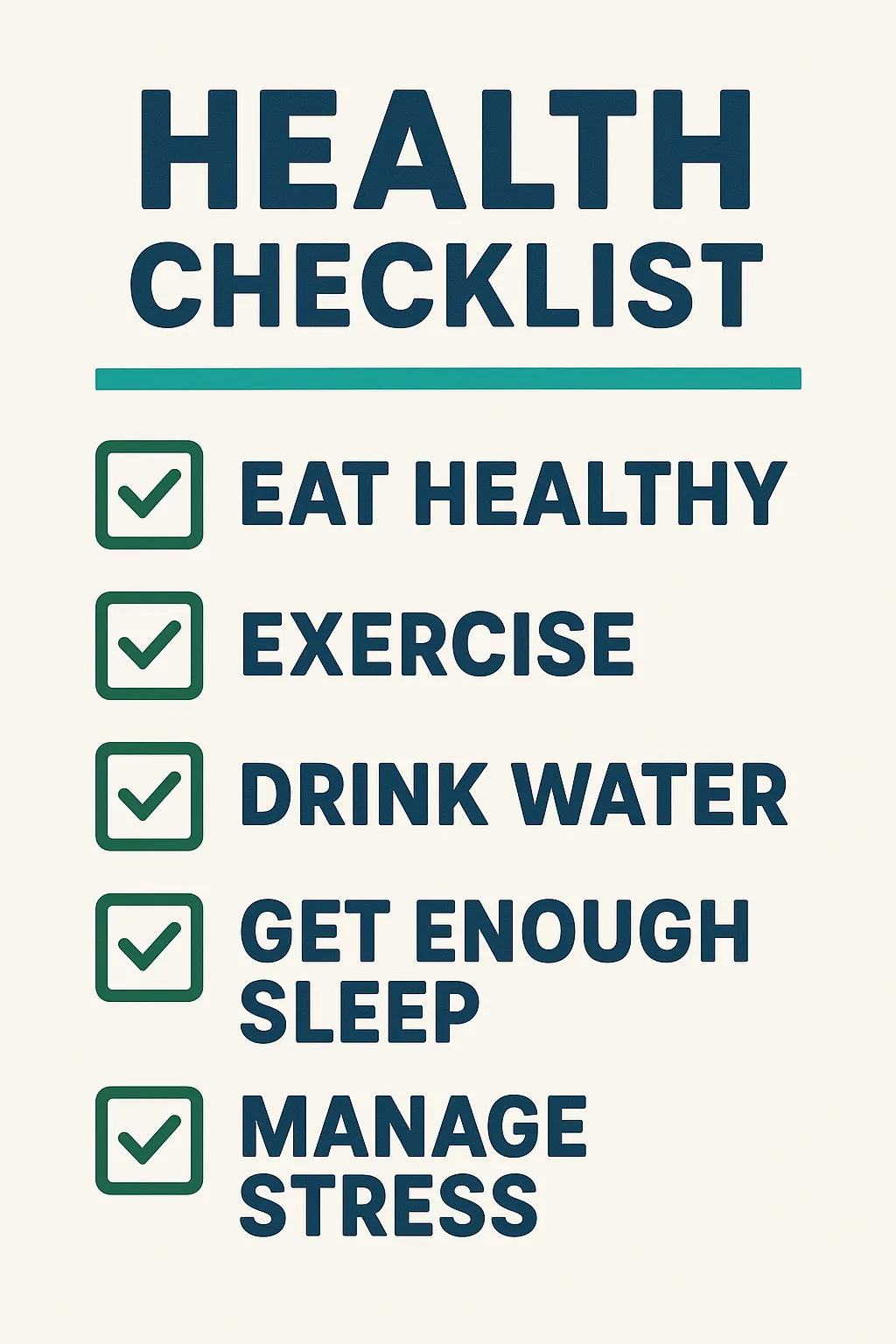📋 Table of Contents
The concept of the “Gut-Brain Axis” has recently attracted tremendous attention from both scientists and the general public. It has been revealed that the gut is not just an organ responsible for digestion, but it communicates closely with the brain and deeply influences our mood, behavior, and overall health.
In this article, we will easily explain how the gut and brain communicate and how this process causes changes in our mental and physical health. Personally, I believe that understanding the gut-brain connection is essential general knowledge for modern people. 🤓
Now, let’s dive into the fascinating and amazing stories about the gut-brain connection!
🧬 Concept and History of the Gut-Brain Connection
The Gut-Brain Axis refers to the bidirectional communication pathway between the gut and the brain. This occurs through the autonomic nervous system, the immune system, and the hormonal system. In fact, this concept began as early as ancient Greece with philosophical thinking that “emotions reside in the gut.”
Especially in the early 19th century, it was believed that the gut was connected to human emotional responses. Later, in the late 20th century, neuroscientists began studying the vagus nerve that links the gut and the brain, and it started to be scientifically proven.
The vagus nerve acts like a superhighway connecting the brain and the gut. Through this pathway, the gut sends signals to the brain, and the brain sends commands back to the gut in a complex communication system.
In modern times, it has been revealed that even gut microbiota are deeply involved in this connection. Thus, the gut-brain connection is understood as a complex network that includes not just neurological connections, but also microbes, hormones, and the immune system. 🌍
🔬 Comparison of Major Gut-Brain Connection Pathways
| Pathway | Feature | Main Role |
|---|---|---|
| Vagus Nerve | Fastest neural pathway | Transmits sensory information |
| Hormonal Pathway | Signal through bloodstream | Regulates stress |
| Immune Pathway | Controls inflammatory response | Defense mechanism |
Through these various pathways, the gut and brain exchange information in real-time and adjust the overall balance of the body. Isn’t it truly amazing? 😍
⚙️ How Does the Gut-Brain Connection Work?
The gut and brain communicate in various ways. One of the most important pathways is the vagus nerve, which transmits information collected from the gut to the brain. For example, changes in gut bacteria or the state of digestion are sent through this nerve.
Additionally, the gut secretes various hormones and neurotransmitters. In fact, the gut produces about 90% of serotonin, an important neurotransmitter that induces feelings of happiness. That’s why the gut is often called the “second brain”!
The immune system also plays an essential role. A strong gut barrier blocks harmful substances from entering the body and controls inflammatory responses to protect brain health. If the gut barrier weakens, inflammation can spread, negatively impacting the brain.
Ultimately, the gut-brain connection is not merely about sending signals back and forth—it’s a complex communication system where nerves, hormones, and immune systems cooperate organically. Taking care of gut health is directly linked to protecting mental health. 🌟
🧪 Summary Table of Gut-Brain Connection Mechanisms
| Element | Function | Impact |
|---|---|---|
| Vagus Nerve | Transmits neural signals | Regulates emotions and appetite |
| Serotonin | Mood regulation | Increases feelings of happiness |
| Gut Barrier | Acts as a defense wall | Prevents inflammation |
As shown in this table, the gut-brain connection operates in multiple dimensions. Remember that maintaining harmony among these elements is key to sustaining a healthy body and mind! 💖
🦠 Relationship Between Gut Microbiota and Brain Health
Trillions of microorganisms live inside our gut. These microbes not only help with digestion but also directly participate in the production of neurotransmitters. In particular, gut bacteria are essential for regulating the production of important substances like serotonin and dopamine. 🧪
Research has shown that a healthy gut microbiota increases resilience against stress and reduces the risk of depression and anxiety disorders. Conversely, when microbial balance is disrupted, it can negatively impact mental health.
For example, a condition called “dysbiosis” refers to an imbalance where harmful bacteria outnumber beneficial bacteria. This state can trigger chronic inflammation, which in turn adversely affects brain function.
Clinical studies are even underway to investigate whether specific probiotics can help improve depression. Nowadays, the idea that gut microbiota form a direct bridge to the brain is a hot topic in the academic world. 🌟
🌿 Comparison of Key Gut Microbes and Their Roles
| Microbe | Feature | Impact on the Brain |
|---|---|---|
| Lactobacillus | Type of lactic acid bacteria, aids digestion | Reduces anxiety |
| Bifidobacterium | Strengthens gut barrier, suppresses inflammation | Enhances stress resistance |
| Clostridium | Handles complex metabolic processes | Stabilizes mood |
Gut microbes send signals to the brain through various pathways. That’s why protecting gut health is the shortcut to protecting brain health! 💬
💬 Amazing Interaction Between Emotions and the Gut
You may have experienced sudden stomach pain when you feel nervous or stressed. This is a representative example of how the gut-brain connection actually works. Emotions are directly linked to gut movements. 🎯
For example, when you are anxious, gut motility can become overactive, causing diarrhea. Conversely, when you are depressed, gut movements slow down, leading to constipation. These physical reactions are not just coincidences—they are the result of communication between the brain and the gut.
Even gut microbiota respond to emotional changes. Under stress, beneficial bacteria decrease, harmful bacteria increase, and this can lead to digestive diseases or mood disorders. For this reason, even psychiatric treatments today often include gut health assessments.
Interestingly, positive emotions help create a healthier gut environment. Meditation, exercise, and good eating habits strengthen the gut-brain connection and enhance mental stability. 😊
🧘 Summary Table of Gut Reactions Based on Emotions
| Emotion | Gut Reaction | Result |
|---|---|---|
| Anxiety | Overactive gut motility | Causes diarrhea |
| Depression | Reduced gut motility | Causes constipation |
| Joy | Balances gut microbiota | Improves digestive health |
In conclusion, managing emotions is directly connected to managing gut health! Remember, even taking a few deep breaths during times of stress can make a huge difference. 🌟
🍏 Impact of Food on the Gut-Brain Connection
The food we eat every day changes the gut environment, and these changes directly affect the state of the brain. Eating good foods increases beneficial gut bacteria and sends positive signals to the brain. On the other hand, poor eating habits can increase stress and feelings of depression.
For example, foods rich in dietary fiber provide excellent nourishment for gut microbes, strengthening the gut barrier and enhancing anti-inflammatory effects. In contrast, sugar and high-fat foods can trigger inflammation, harming both the gut and brain. 🍬
It’s also very beneficial to regularly consume probiotics (beneficial bacteria) and prebiotics (food for beneficial bacteria). Fermented foods like yogurt, kimchi, and doenjang (soybean paste) help balance the gut microbiota and even improve your mood.
Especially, fish and nuts rich in omega-3 fatty acids are effective in reducing inflammation and protecting nerve cells. Regularly eating these foods strengthens both the gut and brain. 🧠
🍽️ List of Foods Good for the Gut-Brain Connection
| Type of Food | Effect | Reason for Recommendation |
|---|---|---|
| Yogurt | Provides probiotics | Boosts beneficial gut bacteria |
| Kimchi | Provides lactic acid bacteria through fermentation | Promotes digestion |
| Nuts | Rich in omega-3 fatty acids | Anti-inflammatory effect |
I believe that simply making a small daily effort to eat good foods can greatly strengthen the gut-brain connection. After all, health is built up through small everyday habits! 🌱
🛤️ How to Improve the Gut-Brain Connection
Maintaining a healthy gut-brain connection requires attention to small daily habits. First, it’s important to check your eating habits. Reducing processed foods and increasing fiber and fermented foods are the basics of basics. 🌾
Stress management is also essential. Regular meditation, yoga, and light exercise can enhance gut microbial diversity and ease the brain’s stress response. Even just 10 minutes a day of deep breathing can bring remarkable changes.
The quality of sleep also greatly affects the gut-brain connection. Sufficient sleep strengthens the immune system and increases beneficial gut bacteria. I recommend going to bed before 11 PM. 😴
Lastly, regular physical activity activates gut movement and optimizes the gut environment. Even consistent walking and stretching can bring positive changes to both the gut and the brain!
🚶 Summary Tips for Improving the Gut-Brain Connection
| Habit | Effect | Specific Method |
|---|---|---|
| Healthy Eating | Boosts beneficial bacteria | Consume vegetables and fermented foods |
| Stress Management | Reduces inflammation | Meditation, breathing exercises |
| Exercise | Promotes gut motility | Walk for 30 minutes daily |
If you want to strengthen your gut-brain connection, how about starting with small and easy practices today? Truly amazing changes are waiting for you. 🌼
❓ FAQ
Q1. What exactly is the gut-brain connection?
A1. The gut-brain connection refers to the system where the gut and brain communicate closely through the nervous system, hormonal system, and immune system.
Q2. Does gut microbiota affect mood?
A2. Yes! Beneficial microbes are involved in the production of happiness hormones, stabilizing mood and reducing stress.
Q3. If I reduce stress, will my gut health improve?
A3. Correct. When stress decreases, beneficial gut bacteria increase, and the gut barrier becomes stronger.
Q4. What foods are essential for the gut-brain connection?
A4. Foods rich in probiotics and prebiotics, such as yogurt, kimchi, nuts, and vegetables, are highly recommended.
Q5. Why is exercise good for the gut-brain connection?
A5. Exercise activates gut motility and increases the diversity of gut microbiota!
Q6. What symptoms appear when the gut-brain connection weakens?
A6. Symptoms such as indigestion, diarrhea or constipation, and mood disorders like depression and anxiety may appear.
Q7. How does sleep affect the gut-brain connection?
A7. Sufficient sleep helps balance gut microbiota and boosts the immune system.
Q8. What lifestyle habits are recommended to strengthen the gut-brain connection?
A8. Regular eating habits, stress management, consistent exercise, consuming fermented foods, and maintaining good sleep habits are recommended! 🌱

